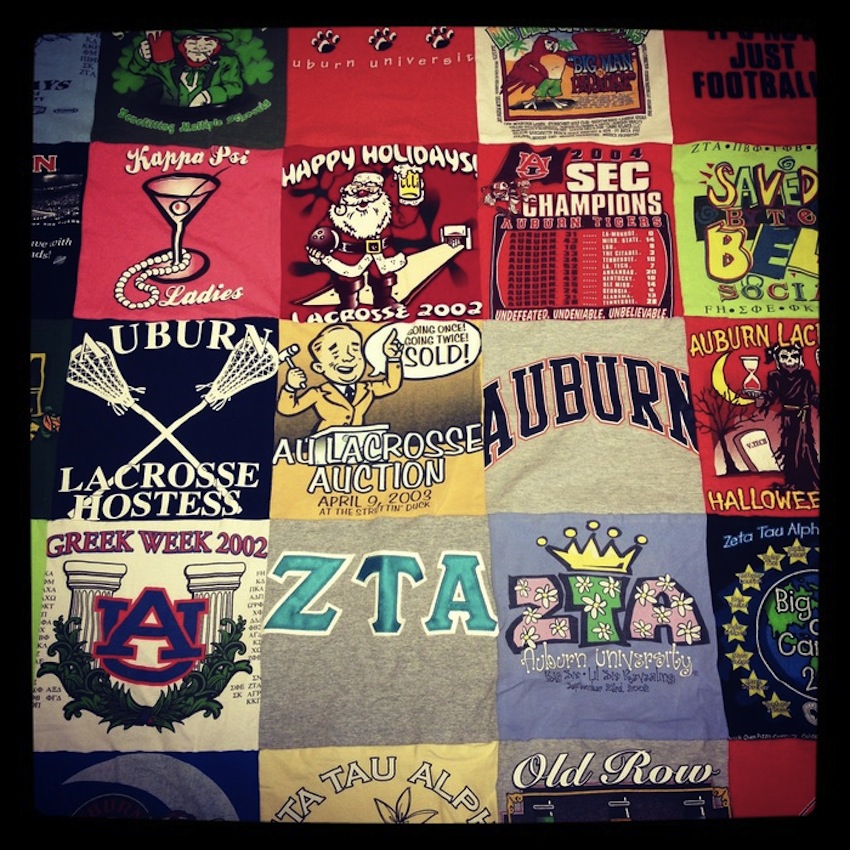Project Repat: Creating Fair Wage Jobs While Recycling Old T-Shirts
For many people, old t-shirts are like trophies, says Nathan Rothstein.
Some shirts remind them of a race they won, an intramural sport they took part in, or possibly a charity event they contributed to. But once the excitement of the day is done, the shirts just become clutter in the closet.
But Rothstein’s company, Project Repat, is helping people clear out the piles of worn cotton by compiling a comforting memorial of the t-shirts, and creating local jobs at the same time.
Project Repat’s mission is to take the old clothes that are otherwise just claiming drawer space, and repurpose them for a niche market which includes runners, college students, and people who tend to hoard the linen memories. “It’s like in [Little League] when you played baseball and got a trophy…t-shirts are the adult version of that. It’s your only tangible part of a certain accomplishment,” he says. “What ends up happening, is a lot of people store them in their closets because there is some memory associated with them. But they no longer wear them. We wanted an easy process for them to preserves those memories,” says Rothstein, a UMass Amherst graduate. Rothstein launched the business with Newton-native Ross Lohr in February last year.
Customers interested in keeping the memories in tact simply go on Project Repat’s website, request a quilt size, and the company then ships a prepaid envelope to them. From there, they ship the t-shirts back, and soon, a soft, square memory is created.
Unlike other companies that create these textiles for customers, Project Repat, which has headquarters in Dudley Square, sources other locally-owned businesses to stitch together the t-shirt memories, supporting employees with fair wage jobs. Project Repat works with manufacturers in Fall River, at Precision Sportswear, in Lawrence, at 99Degrees Custom Manufacturing, and with NuPath, a non-profit organization that employs people with disabilities. “We wanted to figure out how to turn all of these shirts, made from outside the U.S., into U.S. jobs. The social side of our business is integrated fully into the overall business. We don’t see it as ‘we make all of our stuff in China and we give a percentage to a non-profit’…we incorporated this into our business so customers know it’s helping U.S. jobs.”
And it shows. The company has already sold $1 million worth of blankets since it first launched, while saving 150,000 t-shirts from going into landfills. Rothstein launched the business with Newton-native Ross Lohr last February.
Looking to go beyond just blankets the company launched a Kickstarter campaign, which recently suprassed its fundraising goal, raising more than $20,000, and will move onto making more products out of old t-shirts, including tote bags, neck ties, and even laptop cases and onesies for babies.
But Rothstein has an inkling that the blanket will remain the top seller in the “upcycled” t-shirt business. “People hang them up, people use them on couches, or even to sleep with…it represent their life and who they are. All of those shirts are in one place. It’s also great conversation piece,” he says.


